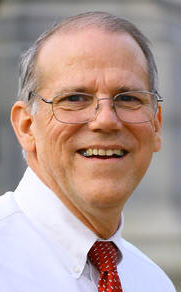Frank Ruff: Banking in the news
Published 12:30 pm Thursday, March 23, 2023
|
Getting your Trinity Audio player ready...
|
 For the last two weeks, we have heard much about banks. It does not sound good. For many years since the ‘Great Depression’, the public felt comfortable depositing their hard-earned dollars in the bank. So comfortable that they were allowed too much freedom to make mortgage loans that they immediately sold to Freddie Mac with no concern about the quality of those loans. That policy led a collapse of some banks 15 years ago. You would have thought that would have taught the regulators a lesson. It now appears that not enough learned the proper lesson.
For the last two weeks, we have heard much about banks. It does not sound good. For many years since the ‘Great Depression’, the public felt comfortable depositing their hard-earned dollars in the bank. So comfortable that they were allowed too much freedom to make mortgage loans that they immediately sold to Freddie Mac with no concern about the quality of those loans. That policy led a collapse of some banks 15 years ago. You would have thought that would have taught the regulators a lesson. It now appears that not enough learned the proper lesson.
Two weeks ago, in a period of a few days, three banks crashed. Each had done what no good banker should have done. They put too many eggs in one basket. Two of the banks were heavily invested in cryptocurrencies. After fraud was found in some of those ‘alternative monies’, their depositors wanted their savings out. The third was the 16th largest bank, Silicon Valley; another example of what should not happen. It grew large because it was the fashionable thing for rich technology entrepreneurs. Many wanted to be associated with technology innovation. They were attracting so many deposits that they chose to re-invest too much money in long-term government bonds in which they couldn’t get that money out quickly at full value when things started to sour.
This is where things became really bad. To get the money needed as the run on the bank occurred, they were forced to sale those bonds at extreme losses, losing one third of the value of those bonds. To calm the market, the Feds made the decision to cover 100% of dollars deposited in Silicon Valley. This defied existing policy. The FDIC insurance covers only $250,000 of each account. The President quickly assured depositors that all of their money was safe, and it would not be paid by taxpayers. That is true only if taxpayers have no bank accounts. The fact is that everyone that has a bank account will pay more in fees for years to come to cover those depositors, some of whom are billionaires that have been major donors to left leaning causes.
Was any of this necessary? No, good bankers never invest too heavily in one spectrum of the economy. They spread investments through many types of investments. Silicon claims 60% of solar investment went through them. Likewise, good bankers do not invest but a small portion of investments in ways they cannot cash in quickly.
The reasons things turned so quickly are numerous. First, the bank followed bad policy in selecting who were members of their Board of Directors. Instead of finding the best, most experienced board members, they appointed members who were more focused on diversity. While that might be noble, it did not give them a board that understood serious fiscal policy.
Without an experienced board that was independent of management, the board did not reign in management as they clearly should have. As it may be turning out, not only did their management need supervision in policy, it now appears they needed supervision in law and ethics. In February, the CEO sold millions of dollars’ worth of stock. Investigators will now have to figure out if he sold that stock with inside information, knowing what was going to happen.
Secretary Yellen, when questioned about the decision to make all investors whole, admitted that guideline policies were not followed but were decided by her and insider regulators. She went on to say that any future failures would be done on a case-by-case basis, not by law or policy. We should all be worried about this type of thinking, a decision that might be based on politics rather than policy.
Likewise, we should be worried about a policy where investors and management take risks because they expect the government to bail them out.
BANK CARD FEES
Some have asked me to warn citizens that some merchants have started to add a fee to those using bank credit cards to offset the fees that banks charge them.
Many of us increased our usage of bank cards to avoid spreading COVID. Now you need to learn to ask those you do business with if they are going charge you a fee before you make a purchase.
Frank Ruff Jr. represents Lunenburg in the state Senate. His email address is Sen.Ruff@verizon.net.

